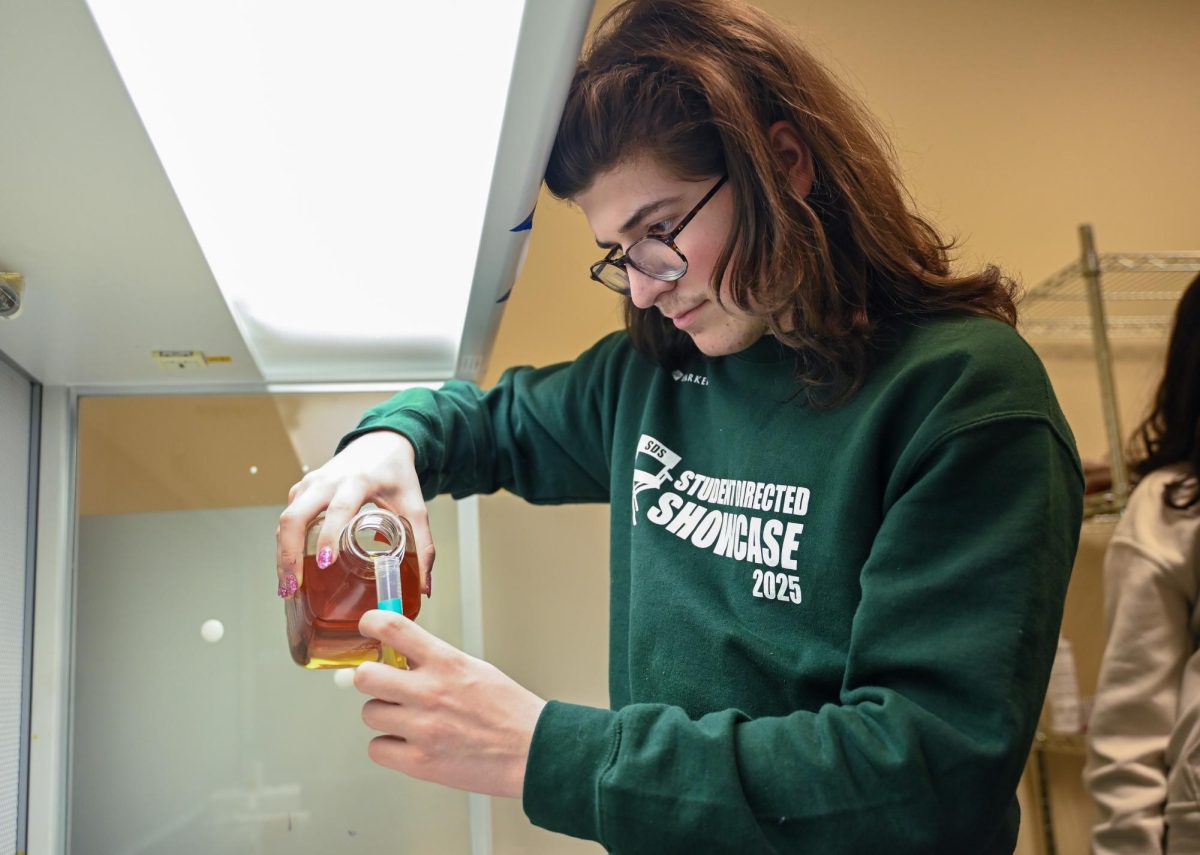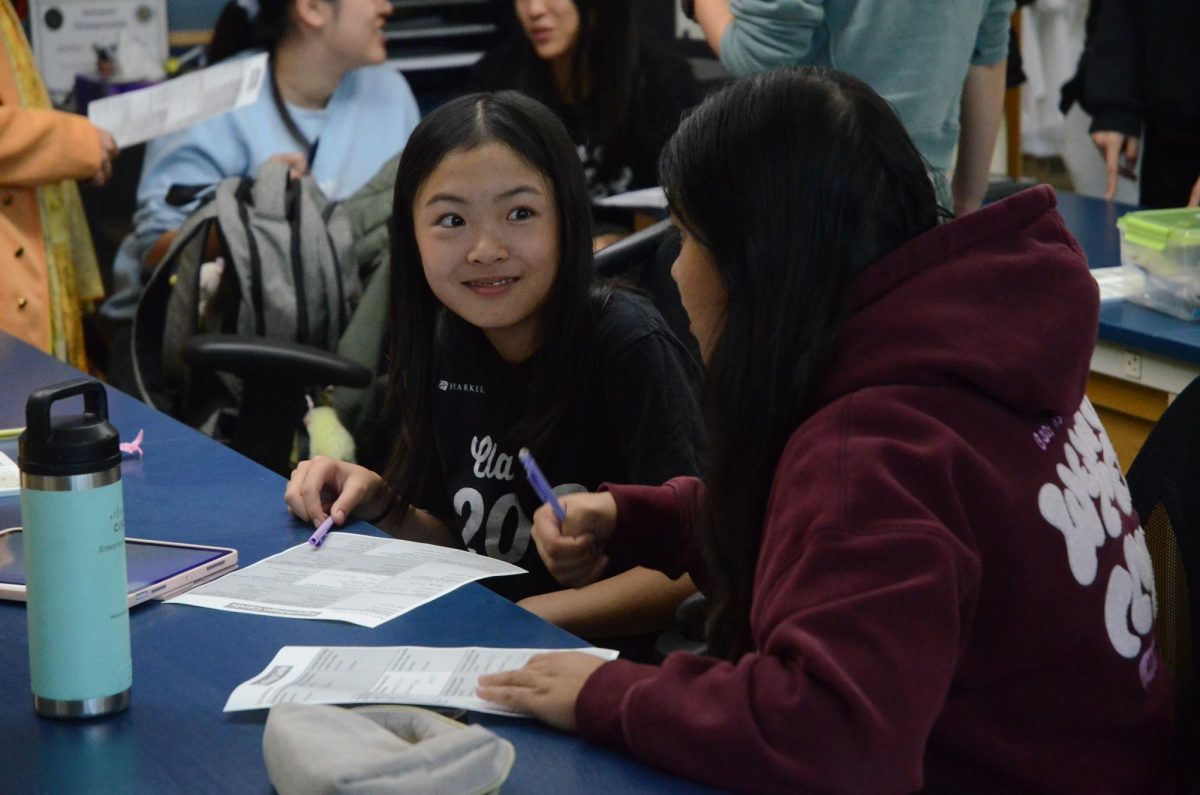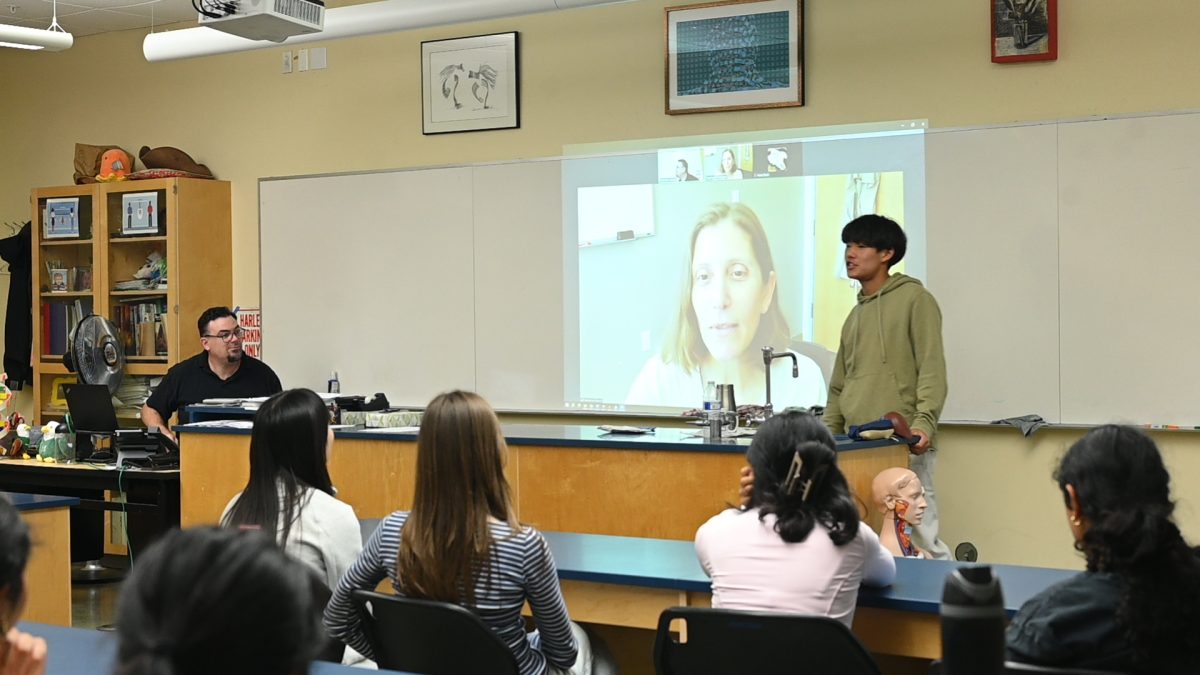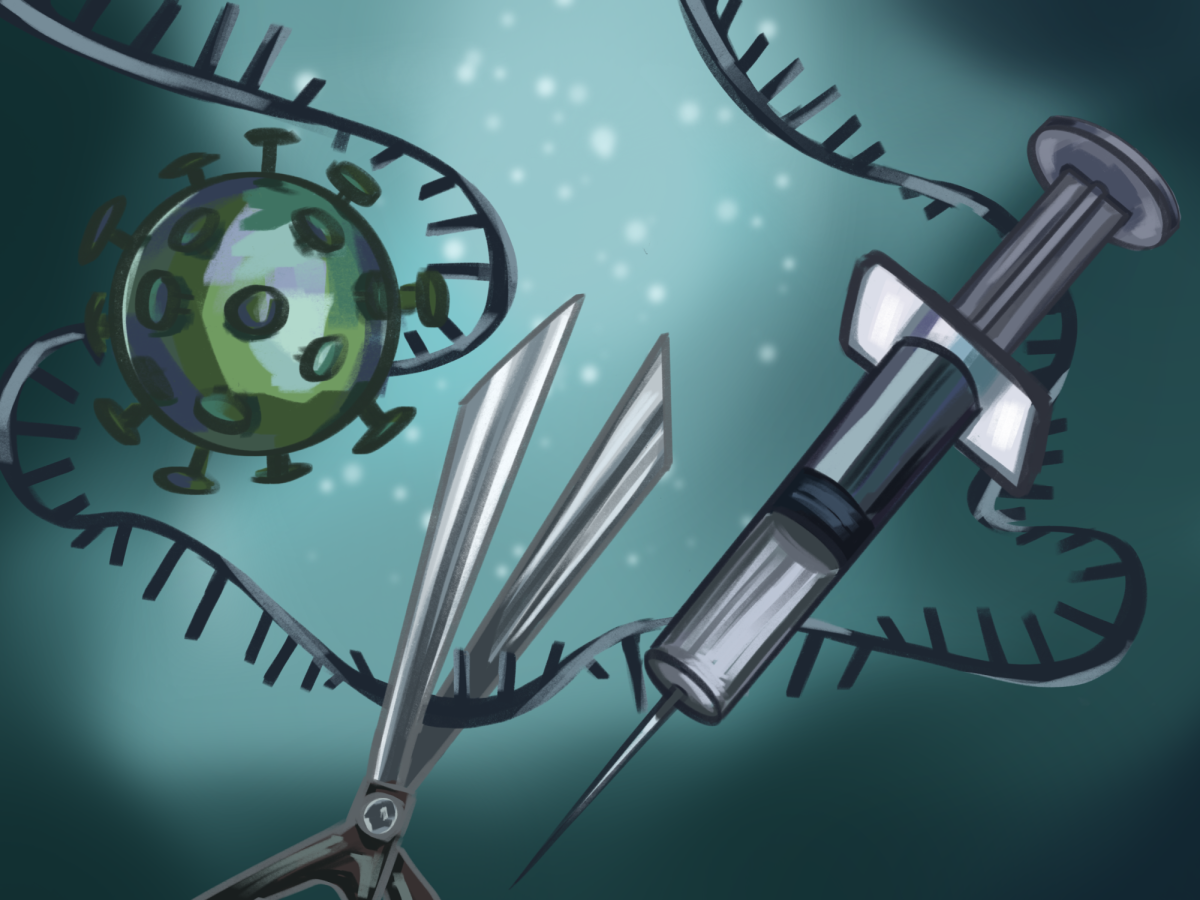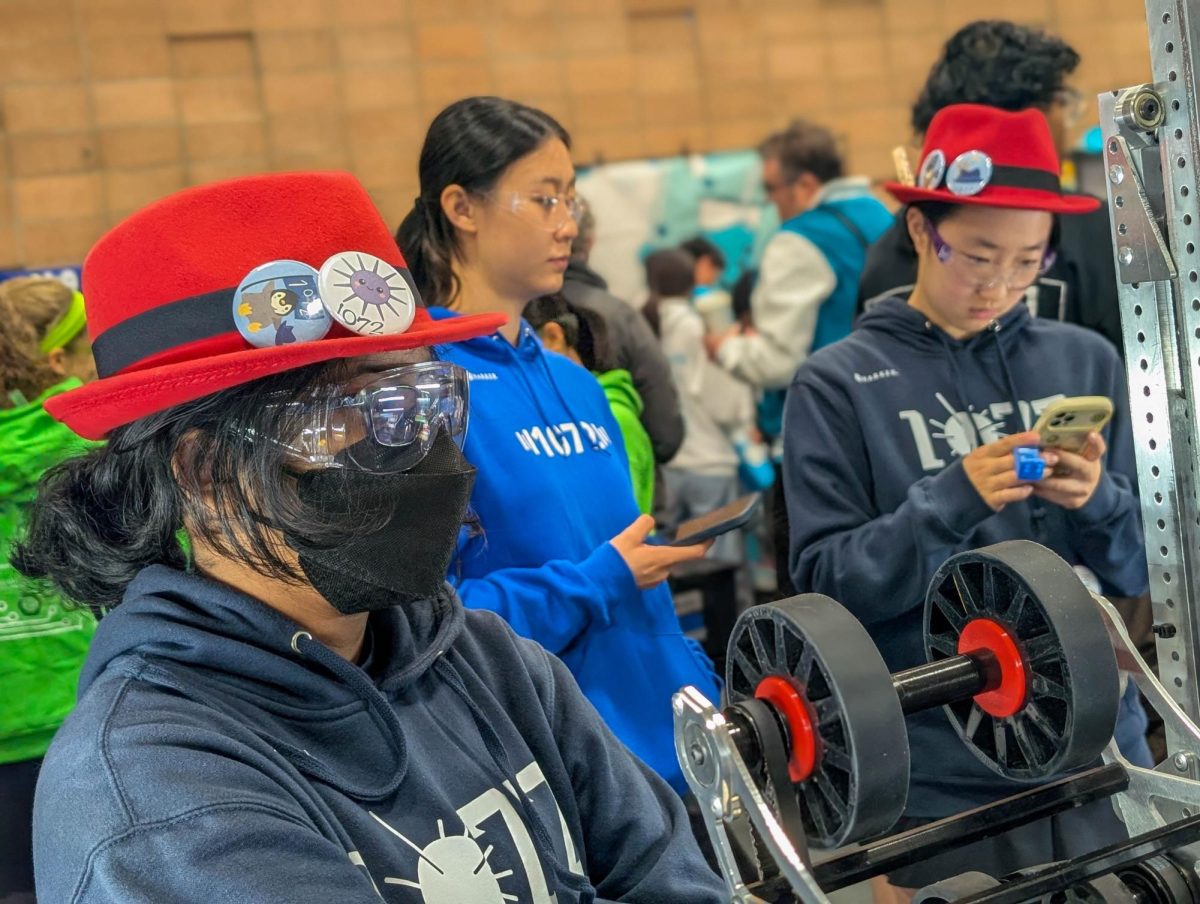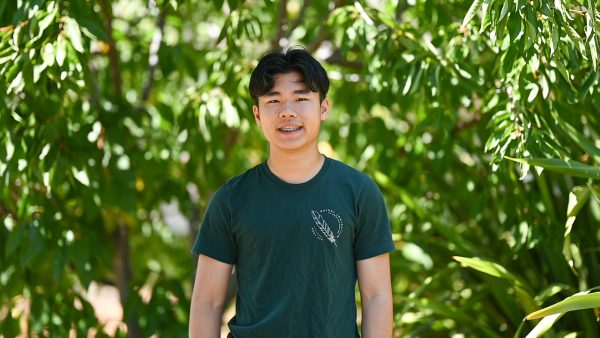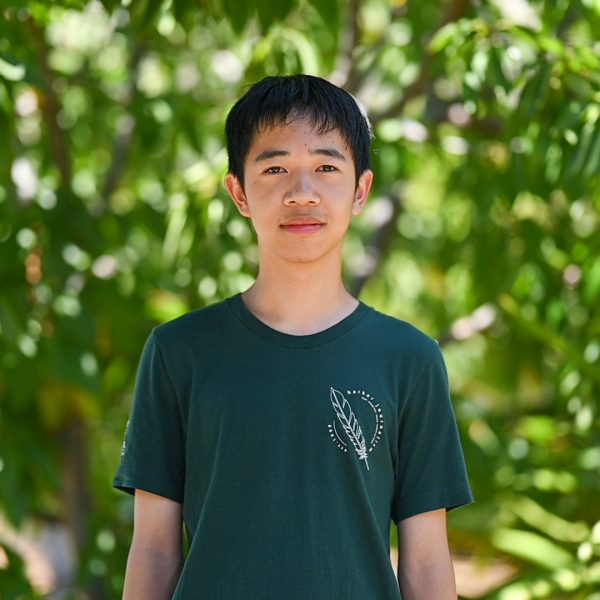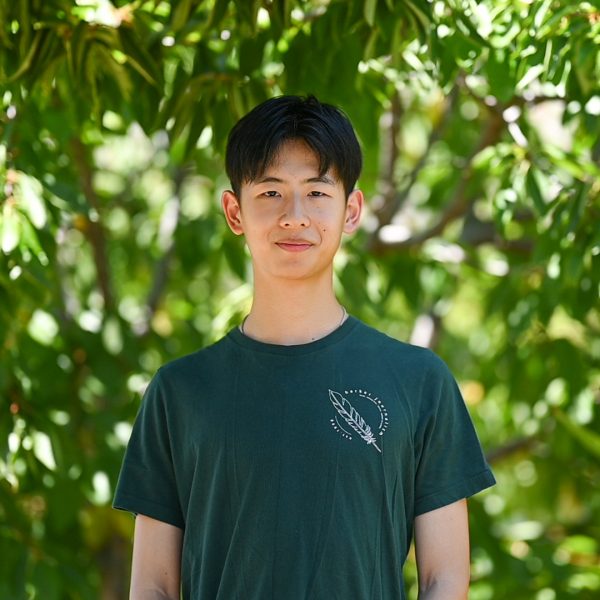High schools across the United States rarely offer bioinformatics due to its recent emergence and the need for extensive resources and equipment. However, this year Honors Bioinformatics debuted as a science elective for students who have completed one semester of biology, taught by science teacher Zane Moore.
After a Harker family donated an Illumina DNA sequencer in the summer of 2023, science department chair Anita Chetty pictured a course that delved into the essentials of DNA sequencing, the technique of determining the exact order of nucleotides in a DNA molecule.
Dr. Moore followed that vision and developed a class curriculum where students learn about the sequencing process and apply their understanding in labs, like analyzing tumor sequences and assembling the genome of a glowing millipede. He hopes that students can apply the knowledge and experience gained from bioinformatics to various fields.
“I’ve always been interested in using computational biology and mechanisms to solve biological challenges, and I thought that this new class would be the perfect opportunity,” Honors Bioinformatics student Krish Nachnani (11) said. “In the fields of ethics and biology, it’s important to be using these new machine learning and computational tools to further the field.”
Bioinformatics relies heavily on computer science to make sense of collected data to reach meaningful conclusions. DNA sequencers generate roughly 100 billion gigabytes of raw text, which is impossible for a human to manually interpret. Through this course, Dr. Moore hopes that students will be able to understand natural phenomena by generating targeted questions and methods to make sense of the vast amounts of data produced by sequencers.
“Sequencing is an easy thing to throw around, but sequencing with intention about what you’re trying to test, that’s what I want to teach,” Dr. Moore said. “It’s not just like, ‘Oh, look at this, let’s throw it in the sequencer.’ It’s saying, ‘Using the scientific method, I have a hypothesis. This pumpkin got damaged here. Maybe we can see something about the DNA at this damaged spot.’”
In this semester’s overarching lab project, students selectively mutate E. coli. by placing colonies in multiple environments, like UV radiation and antibiotic mediums. At the end of the semester, two winners are selected: the E. coli strain that can survive best in a mystery environment and the one that has mutated the most without dying.
Senior Juliana Li, who is taking the course this semester, appreciates how bioinformatics goes beyond traditional subject boundaries, allowing students to apply their diverse skills for applications in real-life situations.
“Usually, we do pure math, pure biology or pure computer science,” Juliana said. “Since bioinformatics is the intersection of biology, computation, math and computer science, it’s just super cool to see how those things combine and how it can make more of a real world difference by integrating the techniques of all of these disciplines.”


















![“[Building nerf blasters] became this outlet of creativity for me that hasn't been matched by anything else. The process [of] making a build complete to your desire is such a painstakingly difficult process, but I've had to learn from [the skills needed from] soldering to proper painting. There's so many different options for everything, if you think about it, it exists. The best part is [that] if it doesn't exist, you can build it yourself," Ishaan Parate said.](https://harkeraquila.com/wp-content/uploads/2022/08/DSC_8149-900x604.jpg)




![“When I came into high school, I was ready to be a follower. But DECA was a game changer for me. It helped me overcome my fear of public speaking, and it's played such a major role in who I've become today. To be able to successfully lead a chapter of 150 students, an officer team and be one of the upperclassmen I once really admired is something I'm [really] proud of,” Anvitha Tummala ('21) said.](https://harkeraquila.com/wp-content/uploads/2021/07/Screen-Shot-2021-07-25-at-9.50.05-AM-900x594.png)







![“I think getting up in the morning and having a sense of purpose [is exciting]. I think without a certain amount of drive, life is kind of obsolete and mundane, and I think having that every single day is what makes each day unique and kind of makes life exciting,” Neymika Jain (12) said.](https://harkeraquila.com/wp-content/uploads/2017/06/Screen-Shot-2017-06-03-at-4.54.16-PM.png)








![“My slogan is ‘slow feet, don’t eat, and I’m hungry.’ You need to run fast to get where you are–you aren't going to get those championships if you aren't fast,” Angel Cervantes (12) said. “I want to do well in school on my tests and in track and win championships for my team. I live by that, [and] I can do that anywhere: in the classroom or on the field.”](https://harkeraquila.com/wp-content/uploads/2018/06/DSC5146-900x601.jpg)
![“[Volleyball has] taught me how to fall correctly, and another thing it taught is that you don’t have to be the best at something to be good at it. If you just hit the ball in a smart way, then it still scores points and you’re good at it. You could be a background player and still make a much bigger impact on the team than you would think,” Anya Gert (’20) said.](https://harkeraquila.com/wp-content/uploads/2020/06/AnnaGert_JinTuan_HoHPhotoEdited-600x900.jpeg)

![“I'm not nearly there yet, but [my confidence has] definitely been getting better since I was pretty shy and timid coming into Harker my freshman year. I know that there's a lot of people that are really confident in what they do, and I really admire them. Everyone's so driven and that has really pushed me to kind of try to find my own place in high school and be more confident,” Alyssa Huang (’20) said.](https://harkeraquila.com/wp-content/uploads/2020/06/AlyssaHuang_EmilyChen_HoHPhoto-900x749.jpeg)



